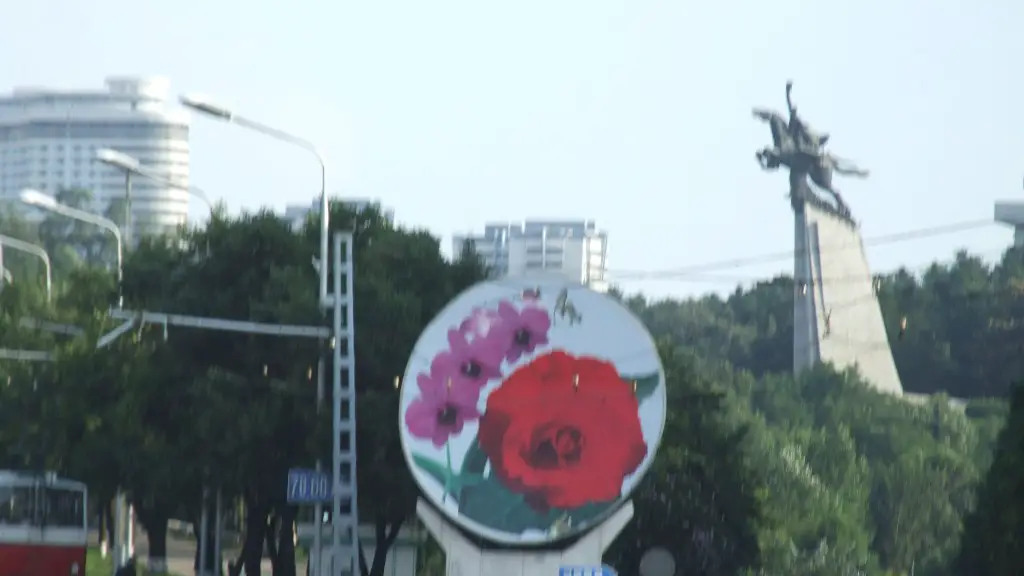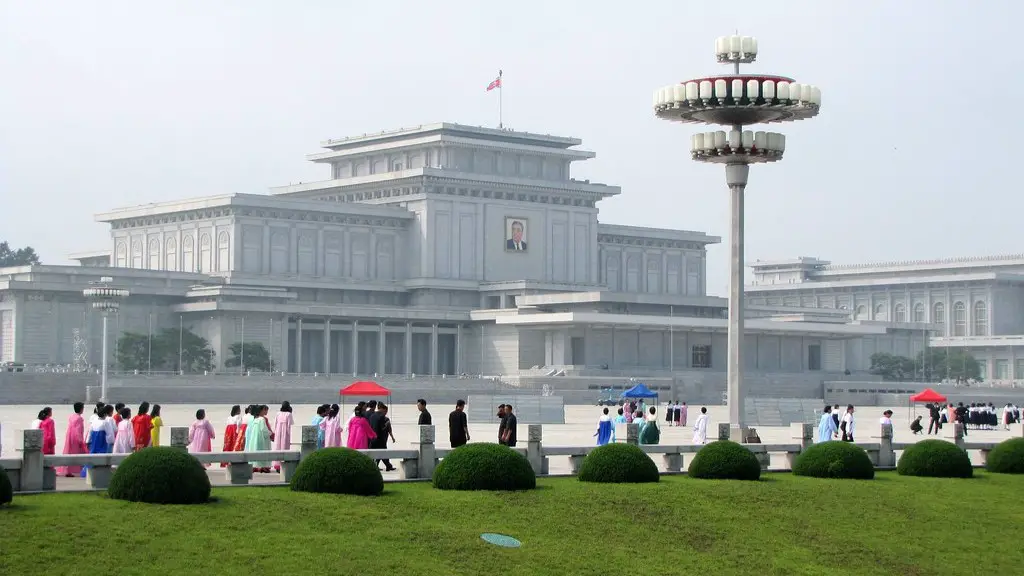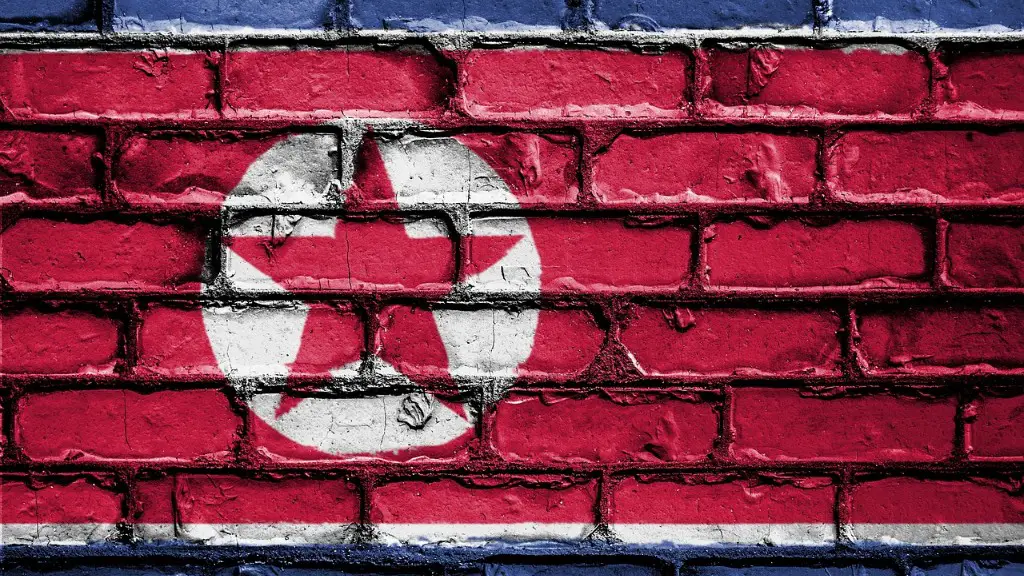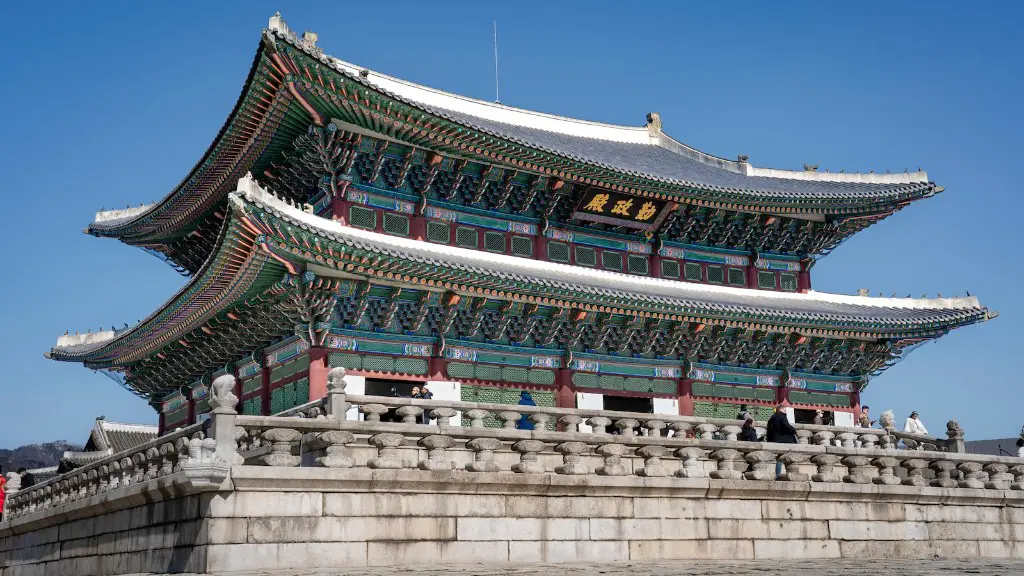History and Purpose Behind North Korea’s Nuclear Program
The ongoing nuclear crisis and tensions between North Korea and the United States are related to the long standing nuclear weapons program of North Korea which has been in the works since the Cold War era. North Korean leader Kim Jong Un and his government have repeatedly stated that the purpose of having a nuclear program is to deter potential nuclear strikes by the US and their allies and protect their country against potential military threats.
The development of nuclear weapons by North Korea is not just about maintaining power but also a security issue; North Korea does not want to see the same fate that happened to their allies Egypt and Libya who had their nuclear programs scrapped and become vulnerable to outside aggression. In addition, North Korea has always felt particularly threatened by the Military of the US which is given more funding and arms than any other country in the world.
In the late 1980s, North Korean scientists were sent to the Soviet Union to produce an atomic bomb, and after the end of the Cold War, the country set a goal to create an arsenal of nuclear weapons. After years of struggling to get the necessary resources, North Korea was eventually able to begin constructing nuclear weapons in 1997 and since then it has steadily developed its nuclear program.
In 2006 North Korea declared it had conducted its first nuclear test, officially joining the nations with a nuclear arsenal. Since then, it has conducted five additional tests and is believed to have enough material to produce 40 to 60 nuclear weapons.
International Sanctions on North Korea
The United Nations Security Council (UNSC) has several times imposed sanctions on North Korea in an attempt to stop the country from developing nuclear weapons. The sanctions aimed to limit the country’s access to weapons-related materials and technologies, to stop exports of prohibited goods, to monitoring Pyongyang’s financial activities, and to ban certain exports.
Despite international pressure, North Korea has continued to advance its nuclear program, pouring resources into its nuclear research and facilities, and believing that having nuclear weapons is crucial for its security. In fact, in recent years there has been more resources allocated to North Korea’s nuclear program, which suggests that there is less willingness to cooperate with the international community over this issue.
In spite of the heavy sanctions imposed by the international community, there has been little to no effect on North Korea’s behaviour. In addition to this, the US imposed further sanctions in 2017 against the regime and a number of people and entities associated with the country’s illegal nuclear development programme.
Despite these sanctions, Pyongyang is continuing to develop its nuclear capability, as evidenced by its recent nuclear tests. These tests, occurring twice in 2020, demonstrate the country’s commitment to extending its nuclear arsenal and its willingness to risk economic and political pressure from the international community.
North Korea’s Justifications for Nuclear Weapons Development
North Korea’s argument for justifying its nuclear weapons program revolves around its need for self defence. It argues that the nuclear program is necessary in order to protect its independence and sovereignty from foreign powers that have threatened military strikes. Additionally, North Korea claims that its nuclear program is legitimate self-defence and is not a threat to international security.
North Korea’s government also asserts that the US’ foreign policy is detrimental to North Korean security, and cites the US’ deployment of nuclear weapons in South Korea as an example of this. It claims that Washington is attempting to control the region, and argues that its nuclear program is an effort to counter US hegemony.
Furthermore, the North Korean government justifies its pursuit of nuclear weapons as a form of counter-balancing: it argues that its development of nuclear weapons is a response to the US and other countries that have pursued similar programs. It is also believed that having a nuclear arsenal will give North Korea more leverage in negotiations with the US, which would ultimately benefit the country.
Finally, the North Korean leadership may also be motivated by its psychological and ideological beliefs. It believes that the possession of nuclear weapons is essential for the survival of the country and is seen as a way of maintaining power and winning the respect of other nations.
International Responses to North Korea’s Nuclear Program
The international community has expressed serious concerns regarding North Korea’s nuclear program, due to its potentially dangerous implications. The UN Security Council, the US, and other Western nations have expressed their disapproval of the program and called for Pyongyang to end its nuclear development.
The US has made it clear that it will not accept North Korea as a nuclear power and has consistently stated that it is willing to use military force if necessary to prevent North Korea from acquiring nuclear weapons. Despite this, the US has also indicated its willingness to negotiate with North Korea and has pursued diplomatic efforts to resolve the situation.
Other countries have also expressed concerns about North Korea’s nuclear program and have urged the country to take meaningful steps toward denuclearisation. South Korea, for example, has been actively engaged with North Korea in diplomatic dialogue and has sought to improve relations. In addition, China has also made attempts to push North Korea toward negotiations in order to resolve the crisis.
These diplomatic efforts, however, have yet to yield any significant results. North Korea continues to be committed to its nuclear program and is unwilling to negotiate on the denuclearisation of the Korean peninsula. As a result, the crisis remains unresolved and tensions between North Korea and the US remain high.
The Implications of North Korea’s Nuclear Program
Although the goal of North Korea’s nuclear program is to protect their nation against potential military threats, the implications of such a program are far reaching and potentially dangerous. The development and possession of nuclear weapons raises the risk of a nuclear conflict and could have catastrophic consequences for the world.
In addition, North Korea’s nuclear program threatens to destabilise the region. If other countries in the region, such as South Korea and Japan, were to follow suit and pursue their own nuclear programs, it could lead to an arms race and a breakdown in security and stability.
The US and other countries in the region are also highly concerned about the potential proliferation of nuclear technology. North Korea has a history of selling weapons and military technology to countries such as Syria, Iran and Pakistan, and it is feared that they could use this technology to spread nuclear weapons to other states.
Finally, North Korea’s nuclear program also has negative economic implications. The hefty international sanctions imposed on North Korea have hindered the country’s economic development and resulted in severe economic sanctions for the country.
Understanding North Korea’s Motivations
In order to understand why North Korea is pursuing nuclear weapons, it is important to take the perspective of the North Korean government. It is clear from the government’s actions and rhetoric that they believe that having nuclear weapons is essential for their security and national interests. This view is rooted in their experience of the Cold War, when nuclear weapons were seen as a bulwark against foreign aggression.
Looking at the current international climate, which is dominated by US military dominance, North Korea’s paranoia and fear of potential US aggression is understandable. In fact, North Korea’s attitude is echoed by the leaders of other countries such as Iran and post-Cold War Russia, who have all engaged in nuclear programs in order to protect their countries against US influence.
Furthermore, North Korea sees its possession of nuclear weapons as a powerful symbol of its political status in the international arena. For North Korea, having a nuclear arsenal could demonstrate its commitment to its own security and its will to defend itself against external threats.
Conclusion
It is clear that North Korea is determined to continue its nuclear weapons program and is willing to pay the economic and political price for doing so. The international community has sought to pressure North Korea to abandon its nuclear program, but these efforts have largely been unsuccessful, as North Korea remains focused on developing its nuclear capabilities.
North Korea’s nuclear policy is rooted in its history and its experience of the Cold War, when it was surrounded by hostile forces and felt vulnerable to external threats. As a result, North Korea has pursued a policy of self-defence and has invested heavily in its nuclear capabilities in order to protect its own security and national interests.





